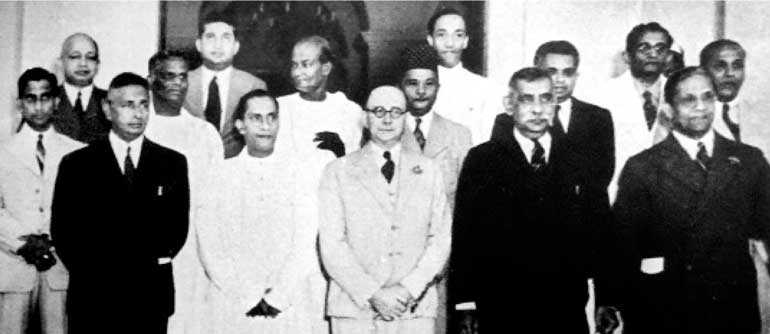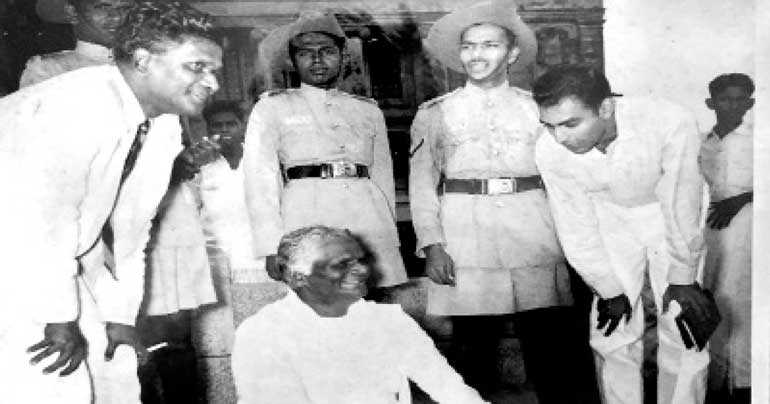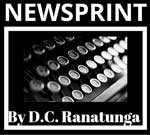Friday Feb 20, 2026
Friday Feb 20, 2026
Saturday, 6 July 2019 00:00 - - {{hitsCtrl.values.hits}}

D.S. Senanayake Cabinet (1947) with Governor Henry Monk Mason Moore in the middle. On his left are S.W.R.D. Bandaranaike and Sir John Kotelawela. Behind them is Suntheralingam

He is all smiles on the pavement. Daily News Deputy Editor H.W. (Berty) Abeynayake is on the left
Reporting parliamentary proceedings as a reporter was a pleasure in the 1950/’60s. In a way it was tough for Sinhala newspaper reporters with the proceedings in the old days being in English. It was rarely that a MP spoke in Sinhala. Yet we managed.
Among the MPs who spoke on almost every subject was C. Suntharalingam, a brilliant scholar who got selected for both the Indian Civil Service and the Ceylon Civil Service. After being vice-principal of Ananda College (it was the pre-Sinhala era), he was Professor of Mathematics at the Ceylon University College (prior to being named as University of Ceylon).
Then he moved over to politics and after being unsuccessful in his effort to enter the State Council, he won the 1947 election as an independent candidate representing the Vavuniya electorate and then joined the UNP. 
In the first D.S. Senanayake Cabinet he was Minister of Trade and Commerce before resigning just after a year on issue of Indian Tamils in the plantations. He was back in Parliament after being the only candidate at the by-election following his resignation. In 1951 he resigned on the National Flag issue.
Back in Parliament having being re-elected at the 1952 Parliamentary Election, he boycotted Parliament in 1955 protesting against the Sinhala Only Act. Although he had to forfeit his seat being absent for three months, he was back after winning the by-election. He won the 1956 General Election too.
The Speaker found it difficult to stop him speaking at length. Once the Speaker ordered the police (police was always on duty at the parliamentary premises) and he was forcibly moved out. Those were the days when the House of Representatives was at Galle Face and when he was removed, he was left on the pavement opposite Parliament. He got his books and other documents and sat on the pavement. Naturally the passers-by were curious to know what had happened.
He continued to contest at the General Elections but was unable to win. The Tamil parties, especially the Federal Party, had organised themselves and independent candidates hardly won. (Suntheralingam always contested as an independent).
He passed away in 1985.
There was hardly any other MP at that time who had such a long and charismatic career, at least not at the time I covered Parliament.